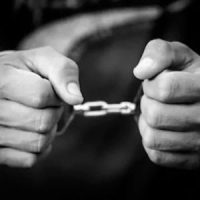Habitual Offenders, Florida’s Three Strikes Law, and the Role of a Criminal Lawyer

Florida’s criminal justice system has a stringent approach when it comes to repeat offenders, it is commonly referred to as the Three Strikes Law. For individuals facing multiple convictions, and their families, it is essential to understand the intricacies of Florida’s Three Strikes Law, the potential consequences for repeat offenders, and how a skilled Clearwater criminal defense lawyer can help if you are someone you care for is navigating legal challenges.
Florida’s Three Strikes Law and Potential Consequences
Designed to address the issue of repeat criminal activity, Florida’s habitual offender laws, often referred to as the Three Strikes Law, identifies certain offenses as strike offenses. Then, should an individual accumulate three or more of those strikes, consequences are escalated.
- Enhanced sentences. If a Florida individual has two or more prior convictions for qualifying offenses, they will likely face significantly enhanced sentences if convicted of a third qualifying offense, including longer prison sentences, sometimes even life imprisonment.
- Limited parole options. Habitual offender rules restrict parole eligibility for those convicted of certain offenses, so repeat offenders may find themselves with limited or no opportunity for parole as a result.
- Mandatory minimums. Because Florida law imposes mandatory minimum sentences for repeat offenders, it is possible that a judge will have limited choice when it comes to sentencing, particularly if the Three Strikes Law pre-determines minimum incarceration terms.
In tandem with Three Strikes Law penalties, Florida has provisions for designating individuals who have a criminal history. People may be labeled as Habitual Felony Offenders (HFO) or Violent Career Criminals (VCC), for example.
Criminal Lawyers Provide Case Assessment and Legal Expertise
Facing the consequences of Florida’s Three Strikes Law is a daunting prospect, but a skilled criminal lawyer has the background to provide invaluable assistance. Attorneys will thoroughly assess the details of each prior conviction and the current charges. With this knowledge, they will strategize the best course of action, considering possible defenses.
A fully informed criminal lawyer can then begin the process of engaging in negotiations with the prosecution. Discussions between the attorney and the prosecutor could lead to a favorable plea deal or reduced charges, this bargaining process can be instrumental in minimizing the potential consequences for a person with prior convictions.
Because Clearwater criminal defense lawyers are well-versed in the nuances of the legal system, they will fight for your rights and bring the best possible defense forward. This is true through plea bargaining and advocacy in court. Should a conviction occur, your attorney can also explore avenues for appeals and post-conviction relief. This may be possible through identifying legal errors during the trial or presenting new evidence that could lead to a reconsideration of the case.
Were you already involved with the justice system and are wondering how Florida’s treatment of habitual offenders will impact you in the event of another conviction? Navigating Florida’s Three Strikes Law requires the expertise of a seasoned legal team. Talk to the lawyers at King Law Group for strategic guidance and information on how to build a robust defense. Schedule your free consultation today.

